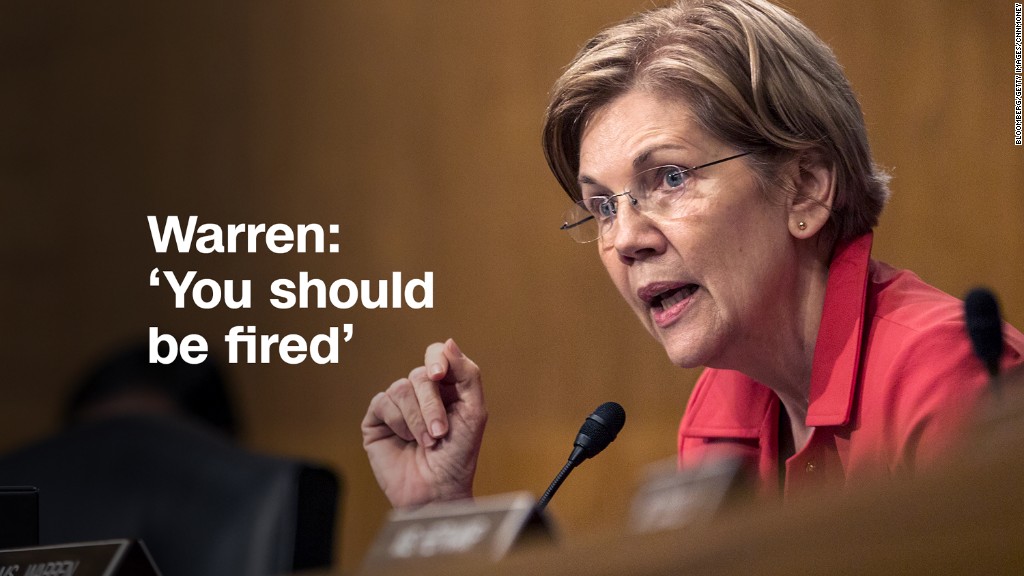
Wells Fargo sold customers an investment that was almost guaranteed to lose them money and told them it was a good way to protect their portfolios, authorities say.
Regulators ordered the bank on Monday to pay investors $3.4 million after its advisers recommended "unsuitable" investments known as volatility-linked products that were "highly likely to lose value over time."
Wells Fargo (WFC) pushed customers into these investments as hedges, to protect against a market downturn. In fact, they are "short-term trading products that degrade significantly over time," regulators said, and "should not be used as part of a long-term buy-and-hold" strategy.
It's the latest black eye for Wells Fargo. Over the past 13 months, the bank has admitted opening 3.5 million potentially fake customer accounts, forcing up to 570,000 borrowers into unneeded car insurance, and wrongly charging homebuyers fees to lock in mortgage rates.
Now FINRA, Wall Street's self-regulatory body, has accused Wells Fargo of failing to properly supervise the sale of volatility-linked products. FINRA says reps from Wells Fargo Advisors, the bank's brokerage division, recommended them from 2010 to 2012 "without fully understanding their risks."
Consider the risk posed by one of the most popular choices. The iPath S&P 500 VIX Short-Term Futures ETN (VXX) has lost 99.97% of its value since its inception in January 2009.
"It is absolutely evil. Obviously, Wells Fargo had no idea what they were selling," said Joe Saluzzi, an expert on market structure and co-author of the book "Broken Markets."
Related: Wells Fargo's legal headaches are hurting its profits
Some retail investors (and evidently Wells Fargo advisers) get confused by volatility-linked products. They wrongly believe these instruments track the VIX, a barometer of market turbulence and investor fear. The VIX (VIX) tends to spike when markets plunge.
In reality, buying volatility-linked products is not a bet on the VIX itself. These instruments track short- and medium-term VIX futures. They are a bet on whether the market will be more volatile in the future than people expect.
"It's not meant for retail. Everyone gets trapped in it," said Saluzzi, co-head of trading at Themis Trading.
Inside these investment products, futures contracts are constantly bought and sold, often at a loss. That makes them a terrible choice for mom-and-pop investors who are buying for the long run, not trading actively.
Morningstar researcher Adam McCullough warned in an article last month that holding on to volatility-linked products has "cost investors dearly over the long run."
Wells Fargo didn't admit nor deny FINRA's charges. The bank said in a statement that it has stopped selling the investments and made "significant policy and supervision changes."
"We are committed to helping our clients achieve their investment goals through advice that is regularly reviewed and aligned to their objectives and risk tolerances," Wells Fargo said.


